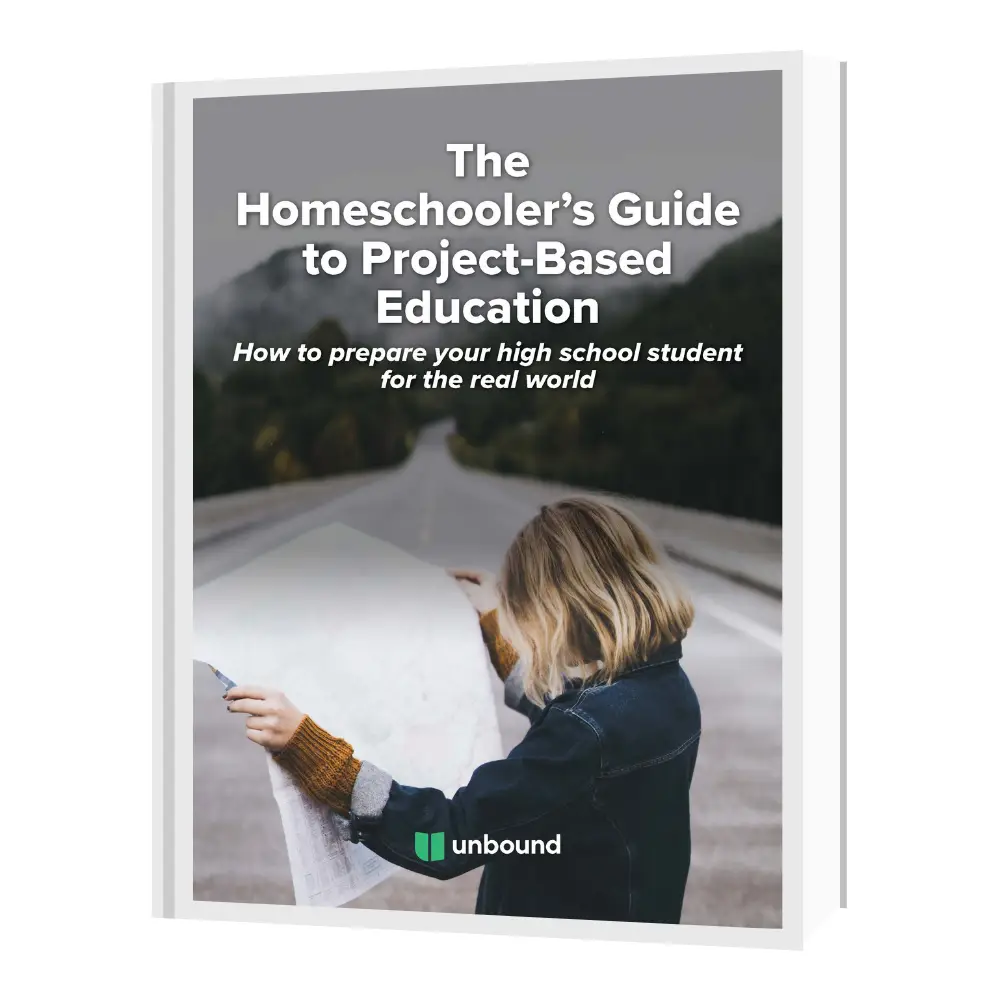Will My Student Ever Become Independent?

Unbound’s CEO, Jonathan Brush, is fond of saying that the transition to adulthood can be summarized by going from sleeping on your parent’s couch to sleeping on your own couch.
And yet many parents of young adults still living at home are concerned that their children may never have what it takes to be independent. Perhaps their young adult lacks serious drive or ambition. Maybe they fear that their child has skill gaps that prevent them from being able to handle their own finances or other responsibilities.
Whatever the reason, parents may be afraid that their child will remain dependent on them and fail to develop the skills necessary for handling life on their own. Digging deeper into this, we realize that independence has a lot to do with responsibility. There is hope for young adults who lack signs of independence. Keep reading to learn more as we explore what makes someone independent and how young adults can grow in independence.
Independence and Responsibility
Defining independence starts with drawing a contrast with dependence. In the progression of an average human life, we start completely dependent on our parents and caregivers for everything. As we grow, we remain largely dependent as children but with an ever-increasing ability to feed ourselves, clothe ourselves, and so on.
By the time your child is in high school they ought to be able to handle these basic life responsibilities on their own (barring any special life circumstances). However, to be an independent adult, one must take responsibility for more than one’s physical well-being. Your high-schooler may be able to feed themselves but they may still be dependent on you for a lot of things. These things may include financial responsibility, time management, and organization.
Even if your young adult has their own job and earns their own money, they can still be financially dependent on you, their parent. Are you the one reminding them to set a monthly budget? Are you reminding them to pay bills on time? If so, they are not truly independent financially since they have not taken full responsibility and ownership of their finances.
The future of education in your inbox.
Get productivity tips, commentary, and Unbound updates sent to you!
Similarly, if you still manage your child’s calendar or their school schedules and to-do lists, then they are still dependent, not independent. We all need reminders from time to time, no matter how independent we become, but there is a marked difference between helpful reminders every now and then and constant time management from one’s parents.
The bottom line here is responsibility and ownership. Does your student manage their own time commitments or do they need you to keep them on track? Do they know what needs to be done on school or work projects or do they require constant reminders?
A truly independent adult needs to be able to manage their tasks, finances, and time commitments on their own. This requires them to “own” those things and accept ultimate responsibility for them.
Relationships
Furthermore, independent adults need to thrive within their own community. Once again, when your child was young, you as the parent largely chose their friends. As they grow up, they are given more responsibility for finding and building strong and stable relationships.
This isn’t to say that your young adult needs to cut off any relationship with family friends. It’s simply to say that an independent adult needs to be able to build relationships on their own, without mom or dad’s help.
Your young adult may lack the motivation to find and build such a community. But no one is an island. They will need to develop strong relationships as they move out into the world or they will be at risk of great setbacks.
At the core of this is the need for self-direction. Like I said above, independence is largely based on ownership and responsibility. Your student must learn to take initiative rather than waiting on you to direct their every step. This can be intimidating (for both of you!) but it’s rewarding when done well.
Relationships require self-direction. Mom and Dad can’t provide their young adult with community and friends forever. At some point, the independent young adult must step out and direct themselves towards relationships that bring value to their life. Additionally, relationships are opportunities to share value as well. Your young adult was created to serve God and other people. At some point, in order to be independent, they need to learn how they do that best and find their own opportunities to serve.
Failure and Independence
Another element in the quest for independence is the ability to learn from and respond to failure, challenges, trials, and setbacks.
When your young adult moves out they will need to be confident in their problem-solving abilities. Their car may break down. They might get sick. They’ll need to be able to respond to these kinds of challenges.
This is where resilience comes into play. An independent adult needs to be resilient and antifragile. They need to be able to rise above the challenges of daily life and thrive in the midst of a lot of responsibilities and problems.
Problem-solving skills are key to independence. Facing failure and learning from it is a necessary element of adulthood and your young adult needs to be ready for the inevitable setbacks.
Developing Independent Young Adults
So, let’s recap: independent young adults need to take ownership and responsibility for their lives (including finances, time management, and tasks), build strong relationships and community, and face the challenges of life with resilience.
As I mentioned at the beginning of this article, many parents are concerned that their young adults don’t possess these traits. They fear that their children will never grow into true independence without a miracle!
The good news is that independence can be learned and acquired. Students can learn responsibility. They can learn relationship-building. And they can even learn resilience.
Learning and developing independence doesn’t happen in a classroom. It happens in real life.
Thriving in Real Life
Unbound understands the importance of independence and the fears that come with that transition. Our training program Ascend addresses each of the elements above and helps students thrive in life.
For example, Ascend provides practical skills training for students in the areas of time management, task management, and leadership. Students don’t just take classes on these important skills. They actually practice them.
Unbound utilizes a model called project-based learning that challenges students to learn from doing real projects. These projects are the responsibility of the student. Students must take ownership for their project if they are to successfully complete the program.
Students in Ascend also receive instruction on time and task management. They learn to manage these things in the context of relationships.
This brings us to the relationship element of independence.
Ascend is built on community. We strongly believe that the impact one can make in one’s life is directly related to the strength and quality of the relationships one builds. The Ascend community is built on the foundation of close-knit teams where encouragement, collaboration, and community happens. These relationships blossom primarily through live events where students meet face-to-face.
Time and task management serve relationships. We are meant to manage our time and tasks so that we can be better suited to relate to and serve others well. This foundational principle stands at the heart of how Unbound trains young adults for lives of impact.
Finally, Unbound trains students to be resilient and effective in the real world. Students are challenged to face failure. When executing a project, failure is an option. And it’s an option that we can learn much from.
Of course, we don’t ask our students to fail. But we do challenge them to overcome failure, to learn from failure. At live events, students are encouraged to live out their hope in practical ways through developing personal resilience in relationships, physical resilience, spiritual resilience, and more.
Conclusion
While independence doesn’t happen overnight, there is good news for parents concerned about their student’s transition to independence.
Independence is contrasted with dependence. Young adults who achieve independence are able to take ownership and responsibility for their own commitments. They need to be able to build strong relationships in service of this goal. Their ability to learn from and overcome failure resiliently is also key.
Ascend trains students to develop these skills and to enter the world and the workforce as competent and independent young adults. Developing a young adult’s self-direction, initiative, and resilience are all elements of this preparation. Ascend uses project-based learning in the real world, strong community, and life skills training to help students launch into their next steps.
To learn more about Ascend and to see if your student is eligible for the program, please schedule a free consultation with our admissions team. They’ll be happy to help answer your questions and provide direction for how your student can get involved.




